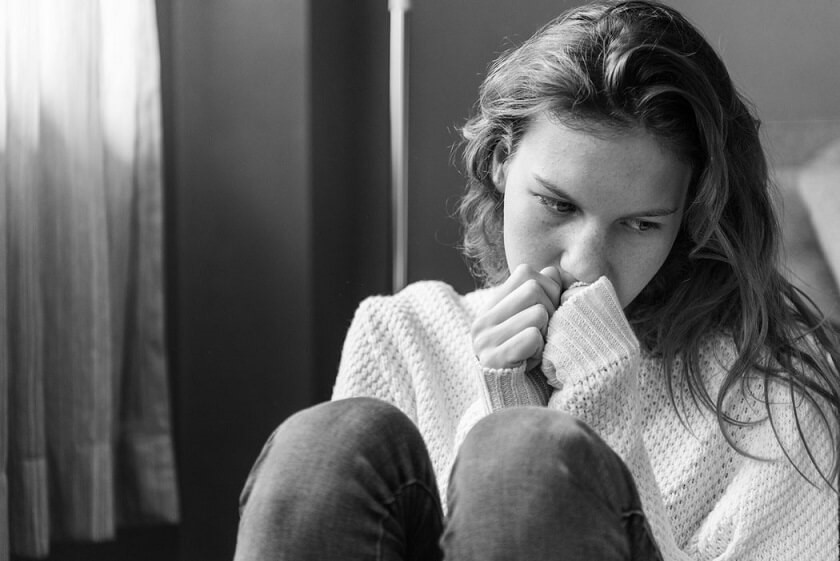Have you ever heard someone declare their intention to be happy or sad on any particular day? How can someone have complete and utter control over their feelings if they don’t know what they’re going to feel? Many individuals have speculated over the years about whether depression is a “choice,” if it is “curable,” and what “leads” to it. Everyone has their own opinions on the subject, but we frequently come across studies in which individuals provide recommendations and advice on how to cure depression or be happy in a few easy steps.
Before we can determine whether depression is a choice or a sickness and before we can look into various treatments, we must first comprehend what depression is.
What is Depression?
Depression (major depressive disorder) is a widespread and significant medical condition that has a negative impact on how you feel, think, and behave. It is also, thankfully, treatable. Depression produces unhappiness and/or a loss of interest in previously appreciated activities. It can cause a slew of mental and physical issues, as well as a reduction in your capacity to operate at work and at home.
Sadness, Grief, and Bereavement are not the same as depression
— A person’s grief might be exacerbated by the death of a loved one, the loss of a career, or the termination of a relationship. It’s natural to experience melancholy or grief in response to such circumstances. Those who have suffered a loss may describe themselves as “depressed.”
— However, sadness is not the same as depression. Grief is a natural and individual process that shares some of the same characteristics as depression. Grief and depression can both cause extreme sadness and a withdrawal from daily activity. They’re also distinct in several ways:
— In sorrow, painful emotions come in waves, frequently blended with happy recollections of the deceased. Mood and/or interest (pleasure) are reduced during most two weeks in serious depression.
— Self-esteem is frequently preserved during sorrow. Feelings of worthlessness and self-loathing are typical in serious depression.
— When thinking of or fantasizing about “joining” a deceased loved one, thoughts of death may arise. The goal of major depression is to end one’s life because one feels worthless or undeserving of life, or because one is unable to cope with the suffering of depression.
— Grief and depression are two emotions that can coexist. The death of a loved one, the loss of a career, or being the victim of a physical assault or a big tragedy can all lead to depression in certain people. Grief that is accompanied by depression is more acute and lasts longer than grief that is not accompanied by sadness.
— It’s critical to distinguish between grieving and depression so that people can obtain the aid, support, and treatment they require.
— It’s difficult to describe depression to someone who hasn’t experienced it. One of the most popular misconceptions regarding depression is that it is the same as being sad or depressed. Although depression causes sadness in many people, it is significantly more severe than the melancholy that comes and goes in reaction to life circumstances. Depression symptoms can continue for months or years, making it difficult or impossible to carry on with regular activities. It has the potential to disrupt professions, relationships, and everyday duties like self-care and housework. Doctors will typically seek for symptoms of depression that have lasted at least two weeks.
The following are some symptoms of depression:

There is no joy or pleasure in life –
A person suffering from depression may no longer enjoy the things they used to enjoy and may believe that nothing can make them joyful.
Concentration and focus become more difficult –
Making any kind of choice, reading, or watching television might be difficult for people who are depressed because they can’t think properly or keep track of what’s going on.
Everything seems dismal, and there seems to be no way out –
Depression can make a person believe that he or she will never be happy again.
Self-esteem is frequently lacking –
People who are depressed may believe that they are worthless or that they have failed at everything. They may be fixated on unpleasant events and experiences and unable to appreciate their own positive features.
Sleeping can be difficult –
For some people suffering from depression, falling sleeping or staying asleep all night can seem practically impossible. Someone may wake up early and be unable to return to sleep. Others may oversleep but still feel sleepy or unrefreshed the next day, despite the extra hours of sleep.
Energy levels are extremely low, if not non-existent –
Some folks can’t seem to get out of bed, and even when they get enough sleep, they feel fatigued all of the time. They may believe they are too exhausted to perform basic everyday duties.
Food may appear unappealing –
Some persons suffering from depression find it difficult to eat and must force themselves to do so. This could lead to weight loss.
Food can be utilized as a source of comfort or as a coping mechanism –
While some depressed people refuse to eat, others may overheat and crave harmful or comfort foods. It’s possible that this will result in weight gain.
There may be aches and pains –
Depression can cause headaches, nausea, bodily aches, and other problems in certain people.
What Is the Treatment for Depression?
Medication –
An individual’s brain chemistry may have a role in their depression and treatment. As a result, antidepressants may be administered to aid in the modification of one’s brain chemistry. There are no sedatives, “uppers,” or tranquilizers in these drugs. They do not form a habit. Antidepressant medicines, in general, have a little stimulating impact on those who are not depressed.
Antidepressants may produce some improvement within the first week or two of use yet full benefits may not be seen for two to three months. If a patient feels little or no improvement after several weeks, his or her psychiatrist can alter the dose of the medication or add or substitute another antidepressant. In some situations, other psychotropic medications may be helpful. It is important to let your doctor know if a medication does not work or if you experience side effects.
Psychiatrists frequently advise patients to keep taking their medicine for six months or longer after their symptoms have eased. For some persons at high risk, longer-term maintenance treatment may be recommended to reduce the risk of future episodes.
Psychotherapy –
Psychotherapy or “talk therapy,” is sometimes used alone to treat minor depression; however, it is frequently used in conjunction with antidepressant drugs to treat moderate to severe depression. In the treatment of depression, cognitive-behavioral therapy (CBT) has been demonstrated to be beneficial. CBT is a type of therapy that focuses on fixing problems in the present. CBT teaches a person to notice distorted/negative thinking and to change their ideas and behaviors so that they can respond to situations in a more positive way.
Psychotherapy might be limited to just one person, but it can also include several. Family or couples therapy, for example, can aid in the resolution of challenges that arise in these close relationships. Group therapy brings people with comparable conditions together in a safe and supportive atmosphere, and it can help the participant understand how others deal with similar situations. Treatment can take a few weeks or months, depending on the severity of the depression. In many circumstances, considerable progress can be made in as few as ten to fifteen sessions.
Electroconvulsive Therapy (ECT) –
Medical treatment is used to treat individuals with severe major depression who have failed to respond to conventional treatments. While the patient is sedated, a brief electrical stimulation of the brain is performed. ECT is usually administered two to three times each week for a total of six to twelve treatments. A psychiatrist, an anesthesiologist, and a nurse or physician assistant are normally part of a team of skilled medical experts who manage it. ECT has been utilized since the 1940s, and years of research have resulted in significant advancements and acceptance of its efficacy as a “mainstream” treatment rather than a “last option.”
The guilt and worthlessness that come with depression can make it all too easy to blame ourselves for how we’re feeling—especially if our friends and family are already blaming us. However, this does not imply that it is your fault. Depression is a legitimate condition, and there are effective therapies available to help you feel better. You don’t have to suffer in silence or feel guilty for not putting up enough effort to recover. When we are depressed, sometimes the best we can hope for is to get through the day.
References:
- Berry, J. (2018, July 11). How do I know I am feeling depressed? Medical News Today. https://www.medicalnewstoday.com/articles/314071#men
- American Psychiatric Association. Diagnostic and Statistical Manual of Mental Disorders (DSM-5), Fifth edition. 2013.
- National Institute of Mental Health. (Data from 2013 National Survey on Drug Use and Health.) nimh.nih.gov/health/statistics/prevalence/major-depression-among-adults.shtml
- Kessler, RC, et al. Lifetime Prevalence and Age-of-Onset Distributions of DSM-IV Disorders in the National Comorbidity Survey Replication. Arch Gen Psychiatry. 2005;62(6):593602. http://archpsyc.jamanetwork.com/article.aspx?articleid=208678
by Saloni Lad

